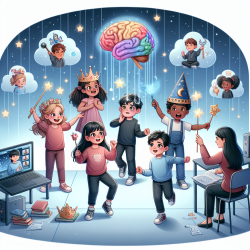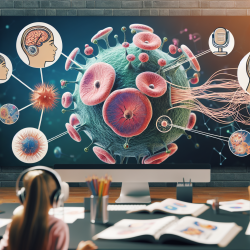As a Special Education Director, I am always on the lookout for innovative approaches that can help improve communication skills among students with special needs. One such approach, highlighted in the research article "Performing for Better Communication: Creativity, Cognitive-Emotional Skills and Embodied Language in Primary Schools," involves using performative theatre to enhance creativity, emotional skills, and oral communication. This blog will explore how you, as a practitioner, can implement these findings to foster better communication in your students.
The Power of Performative Theatre
Performative theatre, unlike traditional theatre, is an emergent and relational practice that integrates creative, cognitive, and emotional elements. It engages students in a dynamic process where they explore language through embodied experiences, making it an effective tool for teaching English as a Foreign Language (EFL) and for improving communication skills in students with neurodevelopmental disorders (NDDS).
Key Findings from the Research
The CELAVIE pilot study presented in the research article focused on a 10-year-old student named Charles, who has NDDS. The study found that:
- Charles showed significant improvement in his executive functions, particularly in inhibition, flexibility, and emotional control.
- His cognitive-emotional skills, especially inter-individual emotional awareness, improved markedly.
- Charles's involvement in performative theatre activities increased over time, leading to better engagement and communication skills.
- There was a noticeable enhancement in Charles's creativity, both in terms of verbal and bodily expression.
Implementing Performative Theatre in Your Practice
To replicate these positive outcomes in your school, consider the following steps:
- Incorporate Drama Workshops: Integrate performative theatre workshops into your curriculum. These workshops should be led by trained professionals who can guide students through creative and emotional exercises.
- Focus on Embodied Language: Encourage students to use their bodies to express emotions and language. This helps in making abstract concepts more tangible and easier to understand.
- Foster Emotional Awareness: Use activities that help students identify and express their emotions. This can be done through role-playing and storytelling, which are integral parts of performative theatre.
- Promote Collaboration: Performative theatre thrives on teamwork. Encourage students to work together, share ideas, and support each other's creative expressions.
Encouraging Further Research
While the findings from the CELAVIE study are promising, further research is needed to fully understand the impact of performative theatre on communication skills. As practitioners, we should stay updated with the latest research and be open to experimenting with new methods.
To read the original research paper, please follow this link: Performing for Better Communication: Creativity, Cognitive-Emotional Skills and Embodied Language in Primary Schools.
By embracing innovative approaches like performative theatre, we can create more inclusive and effective learning environments for all students.










